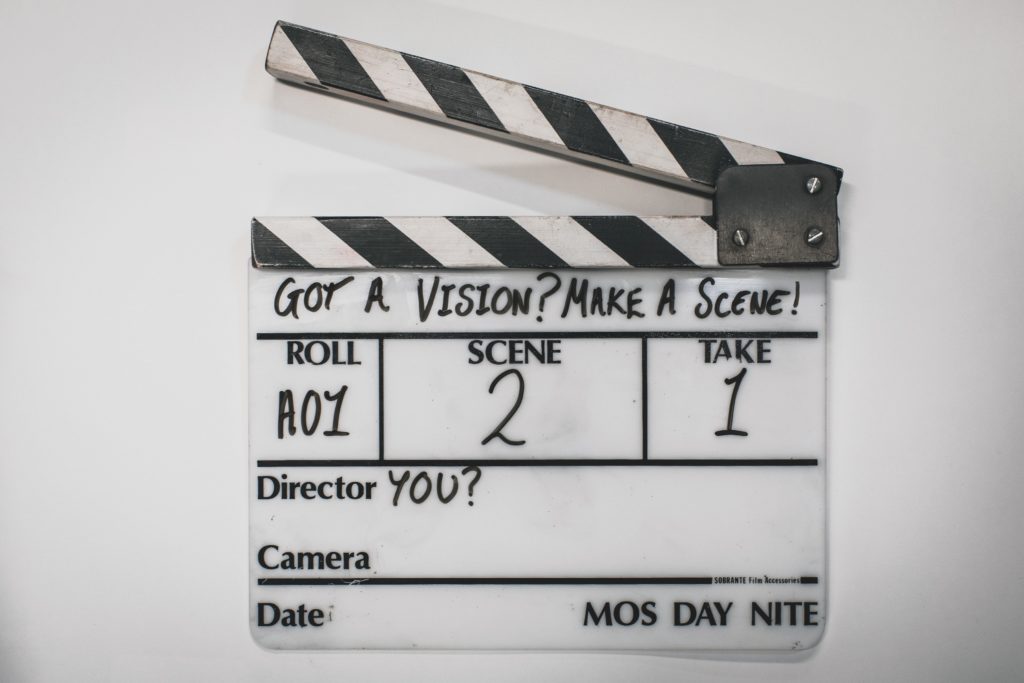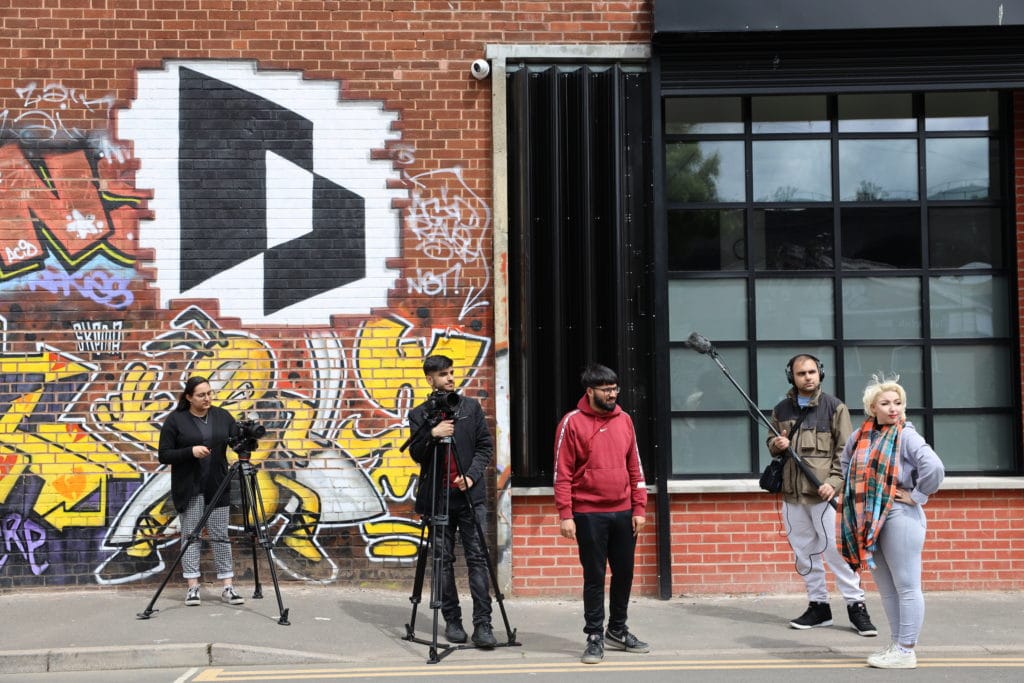In conversation with Carl Hunter, multi-talented director, producer and writer
The school year is in full flow now at Screen and Film School Birmingham, and our first-year students have settled in and are already collaborating with each other. In mid-October we were delighted to welcome the award-winning filmmaker, photographer and designer Carl Hunter to the Film School for a masterclass.
Not only has Carl produced over thirty documentaries for a range of television and film production companies – including one Royal Television Society nomination – but he was also in an 80s rock band. It’s fair to say he had many industry-related tips and tricks to share with our students.
It was at a young age that Carl realised he was fascinated not just by people but by capturing aspects of their lives too. His earliest passions were music and photography, and his path from simply being a people watcher to making films proved to be a fascinating listen for our students. “When I was 13, I realised I wasn’t just taking a picture. I was looking at the people around where I lived. I was framing the world I lived in in a particular way. It felt instinctive. I didn’t know what I was doing then but I realise now.”
With a keen eye and a musical ear, he spent his days studying for a degree in design, and his nights as a bass-strumming rocker. Carl is certainly a ‘big picture’ filmmaker. His work showcases a fondness for panoramic, atmospheric shots, where the story and performers come into frame, rather than the camera following them. In his storytelling, the mise en scène is the star. It’s a technique that has garnered him a stylistic look that has won him awards and acclaim.
“Because I come from a design and photographer background, I do sometimes get obsessed with the visuals. I like to see the visual language in detail. When I shoot a film, I have three rues I never break:
1. Never film someone opening and closing a door – doors tend to open and close themselves and can ruin your continuity.
2. Never shoot improvisation – I like to have the whole story mapped out, to ensure that both myself and the actors know what journey we’re going on together.
3. Never shoot a close-up.”
It’s rule three that had our students were most intrigued by and has caused a few actors – who he politely declined to name – issues in the past, leading to some on-set, creative tension. Something that will inevitably occur in the careers of our young filmmakers and is part of the process and can result in some of the best moments in a finished piece.
It was on the set of his most recent feature film, Sometimes, Always, Never, starring Bill Nighy, where rule three came into focus. “When I said my third rule, there were gasps in the room from certain actors. Someone was worried about it and asked me, ‘Why?’. I said, ‘I don’t think you need them.’ He said, ‘The camera needs to be tight, or I can’t deliver my line!’ I told him your job as an actor is to deliver whatever that subject is. The close-up is your performance.’ I didn’t shoot a close-up in the entire film!”
While that stylistic choice of shot does make Carl’s work stand out, he does emphasise that he always ensures he films a variety of shots, so he can make that choice during the edit. And that this is important particularly for filmmakers just starting out. “For me coverage is king. If I’m going to shoot a scene, I cover the scene. Take a wide shot. Take a mid-shot of one person, mid shot of others, then close up of three. Then you can dictate how you want it to look. It enables you to tell the scene in a different way. The more coverage you’ve got, you can extend the scene forever. If you don’t use it in the edit, at least you have it.”
Much of Carl’s filmography covers documentaries and shorts, but in 2007, he moved into feature films, writing and producing Grow Your Own, starring Olivia Colman. This was a true-life tale based on his work with the Merseyside community group Art in Action, where a number of refugees were each given an allotment by Liverpool City Council. He went on to describe the differences between drama and documentary and the different challenges each of those can bring.
“The challenge was bigger because budgets were bigger. There’s a lot of pressure on you. You always get the same argument: you can’t do this because it won’t sell. You can’t do this because he or she are contracted to a film somewhere else.”
His experience filming in an allotment on Grow Your Own provided some cautionary tales not just about continuity, but the importance of your set and surroundings…and going over budget. The film featured an allotment that was created from scratch especially for the film. “It was the size of a football pitch. But because of the amount of crew, by the end of day three, we’d destroyed the allotment just by the foot count. Film is never shot in the order you see it, so continuity is vital. If you destroy an allotment, that’s going to cause massive continuity issues. So, we brought in people to design and build one, which cos £120,000 even in 2007.”
During the first national lockdown, Carl found inspiration in the adversity we all faced at that time. “I went back to my roots and started photographing Liverpool when it was empty. It was like being on an empty film set and waiting for the actors to turn up. I asked people to leave an answer phone message telling me what they missed most during lockdown. It was all done by phone messages and shots of the empty city. It’s seven minute long and cost nothing to make and it won five awards at various film festivals. It’s a high concept film that’s also very doable. And I guess the point I want to end with is, when starting out on your filmmaking journey, you don’t need fancy equipment and a big budget. You just need to get out there and make something.”
Wise words and an inspirational ending to another great masterclass at Screen and Film School Birmingham. Thanks to Carl for his time and advice, we look forward to seeing the creative project he works on next.
Are you interested in being a part of the new legacy at Screen and Film School Birmingham?
Sign up to one of our Open Days:
Find out more information on our courses by clicking below:





